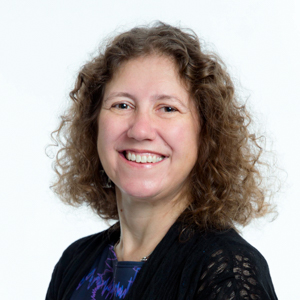Gabriela González
Boyd Professor of Physics
Ph.D., 1995 - Syracuse University
Department of Physics & Astronomy
271-B Nicholson Hall, Tower Dr.
Baton Rouge, LA 70803-4001
225-578-0468 - Office
gonzalez@lsu.edu
Personal Home Page
Research Interests
Experimental General Relativity
Prof. González research interest is in the detection of gravitational waves with interferometric detectors, such as the one in the LIGO Livingston Observatory, in Livingston, LA. She has published several papers on the specific predictions of Brownian motion as a limiting sources to the detectors' sensitivity. She was a founding member of the LIGO Scientific Collaboration, and has participated intensely in the commissioning of the LIGO detector at the Livingston Observatory since joining LSU in 2001, in issues related to alignment sensing and control. Her group is very involved in the instrumental characterization and calibration of the data collected in the data-taking Science Runs performed by the LIGO Scientific Collaboration (LSC). From 2000 to 2007, she co-led one of the four data analysis groups in the Collaboration, dedicated to the search of gravitational waves generated by binary systems of compact objects (neutron stars or black holes) in the final inspiraling stage before coalescence. In 2008-2011, she led the LSc detector characterization working group. In 2011, she was elected as the LSC spokesperson.
Select Publication
- "Observation of Gravitational Waves from a Binary Black Hole Merger", B.P. Abbott et al. (LIGO Scientific and Virgo Collaborations ) Phys. Rev. Lett. 116 (2016) 6, 061102
- "GW170817: Observation of Gravitational Waves from a Binary Neutron Star Inspiral", B.P. Abbott et al. (LIGO Scientific and Virgo Collaborations ), Phys. Rev. Lett. 119 (2017) 16, 161101
- "LIGO Detector Characterization in the Second and Third Observing Runs", D. Davis et al., Class. Quantum Grav. 38 135014 (2021)
- "Noise in the LIGO Livingston gravitational wave observatory due to trains", J. Glanzer et a., Class.Quant.Grav. 40 19, 195015 (2023)
- "Reducing Scattered Light in LIGO's Third Observing Run", S. Soni et al., Class. Quantum Grav. 38 025016 (2021)